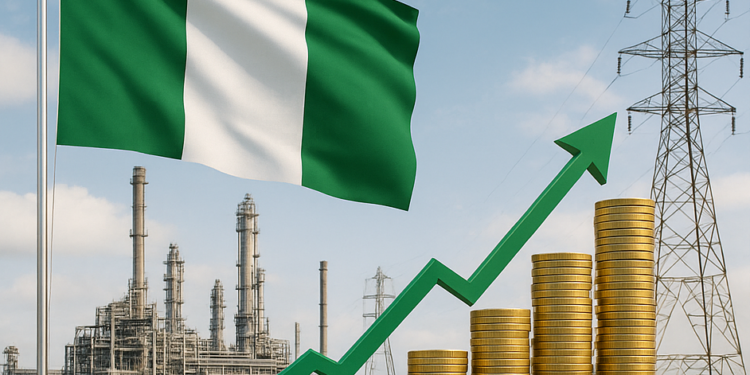Nigeria has made a strong return to international capital markets, its foreign reserves have grown, and for the first time in years, both citizens and businesses can access foreign currency through official channels. In addition, a new private refinery marks a significant step toward energy self-sufficiency in a fully deregulated market. These achievements are no coincidence — they are the direct result of a series of bold economic reforms launched in 2023. In just two years, Africa’s most populous country has begun to reverse some of its most entrenched economic distortions. The government stopped the central bank from financing fiscal deficits, liberalized the foreign exchange market, and dismantled the fuel subsidy system. These measures have not only improved transparency and efficiency but also restored confidence among domestic and international investors.
This transformation is already reflected in tangible outcomes: Nigeria’s credit rating has been upgraded by international agencies, and tax revenues — historically among the weakest in the world — are starting to improve, enabling more effective investment in health, education, infrastructure, and agriculture.
Kenya: a business blossoming from the soil
But the true value of this new direction lies in its long-term vision. Nigeria is no longer relying solely on oil to sustain its economy. The country is actively diversifying its productive base, investing in a digital, industrial, and agri-based economy while laying the groundwork for sustainable and inclusive growth.
Naturally, challenges remain. Inflation still exceeds 20%, poverty affects 42% of the population, and inadequate energy infrastructure continues to hinder development. However, a clear strategy is in place: while growth engines are being strengthened, the government is expanding its cash transfer system to protect the most vulnerable and ensure that economic progress reaches every part of the country.
At the same time, Nigeria is moving toward more effective budget management — based on realistic assumptions, transparent execution, and well-defined priorities. The goal is to channel savings from the removal of fuel subsidies into transformative investments: reliable electricity, functional roads, well-equipped schools, and productive jobs for a predominantly young population.
In parallel, ongoing tax reforms are broadening the fiscal base and making compliance easier, paving the way for greater equity and long-term financial sustainability. Over time, once the current cost-of-living crisis eases, Nigeria will be able to align its tax rates with those of neighboring countries, further boosting its regional competitiveness. Nigeria is writing a new story — one of resilience, transformation, and hope. It is a country refusing to be defined by past challenges and boldly choosing to build a more just, inclusive, and prosperous future. With a young, talented, and determined population, and leadership committed to reform, the African giant is awakening — and this time, it won’t be slowing down.









